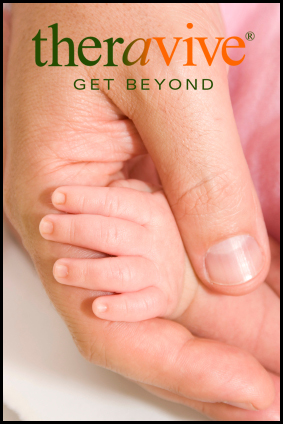 Premature birth, also known as pre-term birth, is any birth that is at least three weeks before the estimated delivery date. A full term birth is 40 weeks, so babies born before 37 weeks are considered premature.
Premature birth, also known as pre-term birth, is any birth that is at least three weeks before the estimated delivery date. A full term birth is 40 weeks, so babies born before 37 weeks are considered premature.
1 out of 9 babies are born prematurely. That is 13-15 million worldwide and half a million in the US each year. In the US, the rate of premature births has increased 36% over the past 25 years. The cost of premature births in the US in $26 billion annually.
Critical growth and development occur in the final weeks of pregnancy, so babies that are born early are at risk for a number of medical and cognitive problems. The majority of infant deaths result from very early birth.
Most pre-term pregnancies are spontaneous, but in some cases babies are scheduled for delivery earlier than the due date. Unless there is a very good reason to do so, such as a threat to the health and safety of the mother or baby, this should be avoided whenever possible.
African American women are about 50% more likely to have pre-term babies. Recent research suggests this may be due to a Vitamin D deficiency. The study indicates that a regimen of Vitamin D may help suppress inflammation that could result in pre-term births for some women with infections.
Problems Related to Pre-term Birth
According to the CDC, the following are lifelong problems that can result from premature birth:
- Mental retardation, also know as intellectual or developmental disabilities
- Hearing loss or deafness
- Respiratory problems
- Vision problems
- Cerebral Palsy
- Problems with digestion and/or feeding
Risk Factors of Pre-term Birth
The CDC has identified several risk factors for pre-term birth. These include:
- Carrying multiples (twins, triplets, etc.)
- Medical problems such as hypertension, diabetes and others
- Infection or injury during pregnancy
- Use of nicotine, alcohol or other drugs while pregnant
Prevention of Premature Birth
There are some things you can do to reduce the risk of a pre-term birth. Your medical provider will instruct you on what is best for you given your specific health history. In general, other preventative behaviors include:
- Keep all appointments with your medical provider and follow his/her instructions
- Follow a healthy diet to prevent excessive weight gain during pregnancy
- Mild to moderate exercise unless your medical provider advices differently
- Take prenatal vitamins, folic acid and Vitamin D as directed by your medical provider
- If you are overweight, try to lose weight before becoming pregnant to reduce risks
- Quit smoking, drinking alcohol and using recreational drugs while pregnant
If you have health complications such as diabetes or hypertension, talk to your medical provider about the risks before getting pregnant. S/he may be able to help you prepare your body to carry a baby safely, and avoid any risks to you or the child.
Preemies
With the marvels of modern science and technology, more than 90% of premature babies who weight two pounds or more will survive. Those weighing one pound have about a 60% chance of surviving.
Babies who are born early lack the body fat to keep them warm, so they generally spend time in an incubator to keep warm. The warmth keeps their body temperature in the normal range which helps them grow faster. Incubators completely surround the infant, which also prevent infection and helps limit loss of water.
‘Kangaroo care’ is an alternative (or adjunct) to incubators. With kangaroo care the infant lies on the bare chest of the parent to achieve warmth. Research shows that infants who experience this type of care have lasting benefits in brain development, among others. Hearing the sounds of the parent’s heartbeat simulates life in the womb, which studies have shown improves oxygen saturation, heart rate, breathing, weight gain and other critical developmental factors.
Preemies have special nutritional needs. They are unable to drink from the breast until about 24 weeks. Generally, they are fed through a tube. Breast milk is the best option for feeding if the mom is able to pump milk for feeding through the tube. Most preemies also require supplemental calcium and phosphorus. They are monitored carefully to ensure their nutritional needs are being met.
Preemies are at risk for a number of health complications. These include respiratory and digestive problems, and others. The length of their stay in the NICU will be determined by how well the infant is able to eat and digest food, fight off infection and breathe, among other considerations.
Attachment and Bonding with Preemies
One of the most important developmental needs of an infant is bonding with parents or other adults. Skin on skin contact is critical to physical and psychological health throughout life. Research shows that preemies who have ‘kangaroo care’ are more likely to develop secure attachments by bonding with parents.
_______________________________________________________________________________________________________
"National Prematurity Awareness Month." Centers for Disease Control and Prevention. Centers for Disease Control and Prevention, 29 Oct. 2013. Web. 06 Nov. 2013.
"Pregnancy." March of Dimes. Web. 07 Nov. 2013.
"The Pros and Cons of Kangaroo Care." Preemie Babies 101. Web. 07 Nov. 2013.
About the Author
 LuAnn Pierce, LCSW
LuAnn Pierce, LCSWI am a clinical social worker, therapist and writer. Currently, I offer online therapy and coaching services to people in Colorado and Wyoming. As a provider for the CO Department of Vocational Rehabilitation and the National MS Society, my expertise in counseling people who have disabilities and chronic illness is considerable. I have written for About.com, DailyRx.com, Theravive.com, GoodTherapy.org, SelfHelpMagazine.com and contribute to several other online health and mental health sites.
Office Location:
19th & Dahlia
Denver, Colorado
80220
United States
Phone: 303-910-2425
Contact LuAnn Pierce, LCSW
Professional Website:
http://HireASocialWorker.com